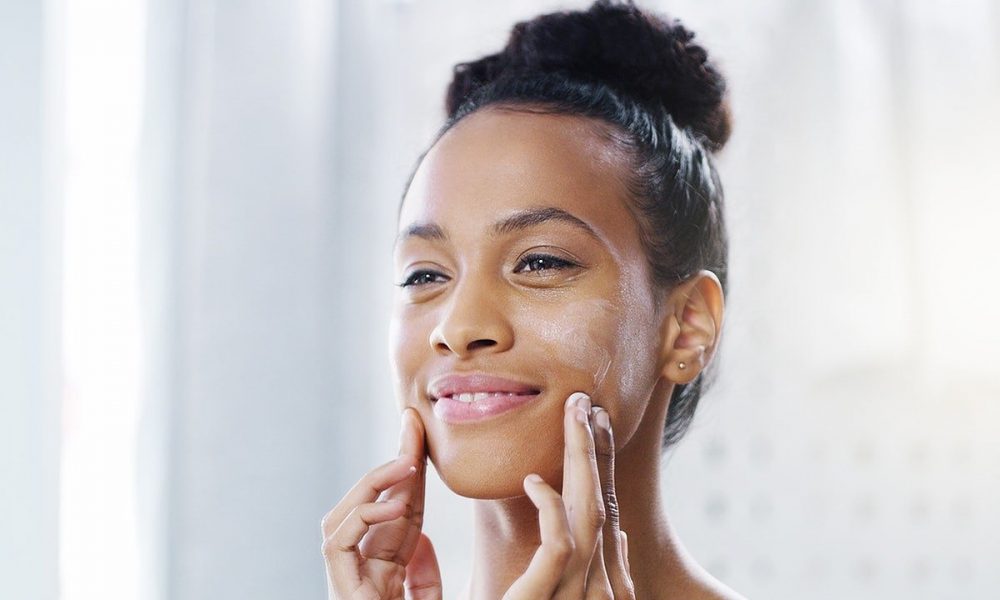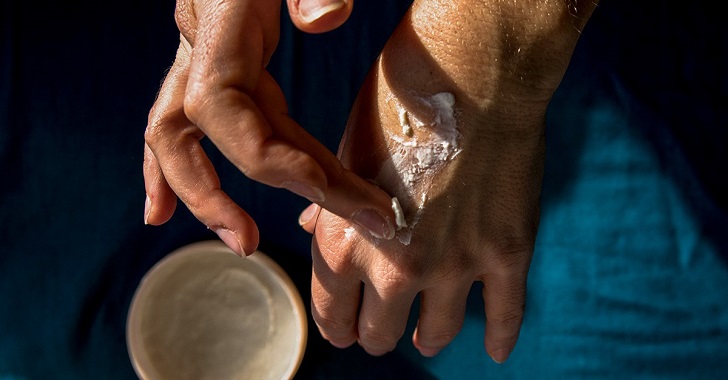
4 Skincare Essentials You Should Use Every Day, According to Dermatologists

While we all strive for that ever-glowing skin, every individual has their notion of how to get to this promised land. Upon a simple Google search, you get lots of conflicting information where the best skincare products are concerned.

Everyone wants that radiant skin, but we all have our opinions on how exactly to go about it
It is admittedly difficult to discern what’s true or not from Google, especially where our health is concerned. Health? Yes, because one wrong move on your choice of product and you may suffer endless skin conditions. And who wants skin flare-ups?
Luckily, we have dermatologists that can guide us on our choice of product. McLean Dermatology’s Dr. Lily Talakoub shares four ingredients whose positive effect on the skin has been proven, so let’s look at what she has to say, shall we?
Glycolic Acid
This ingredient falls into the class of chemicals known as alpha-hydroxy acids (AHA) and acts as a skin exfoliant. AHAs dissolve dead skin, and glycolic acid happens to be the best-performing AHA on this front because of its tiny molecules.
Dr. Talakoub says that using products with glycolic acid as an ingredient leaves your skin softer, radiant, and youthful. Other dermatologists agree with this, adding that glycolic acid also unclogs skin pores, potentially preventing acne breakouts.
To serve as an incentive, the dermatologist even admits to using the AHA herself for her daily routine. She, however, gives the disclaimer that glycolic acid makes your skin a little bit sensitive to sunlight, recommending that you use it in the evening.
Vitamin C
We may know of the importance of this vitamin in preventing scurvy (bleeding gums), but did you also know that it can work wonders for your skin? Dr. Talakoub says that Vit. C is one very effective antioxidant, working to scavenge radicals that otherwise leave your skin looking older than it really is.

Citrus fruits are the best source of vitamin C
Researchers in the UK have established that this vitamin prevents photo-aging, inflammation, and hyperpigmentation. If you happen to reside in a polluted area, vitamin C maintains your radiant complexion by protecting your skin.
Retinol
If you were any good in Biology, you definitely know that retinol is a vitamin A derivative. Back in high school, they told us that it prevented night blindness, but Dr. Talakoub now says that it has an anti-aging effect on the skin. Cool, right?
Retinol is in a class of its own when it comes to anti-aging – when other products target the uppermost skin layer, retinol targets all the skin layers, improving their elasticity. Dr. Talakoub adds that it also helps in skin regeneration, leaving your skin looking fresh 24/7.
Ceramides
The skin naturally produces ceramides which are lipids that form its moisture barrier. Of course, synthetic versions of these lipids are available in creams and moisturizers, and they are manufactured to mimic the function of their naturally occurring counterparts.
Dr. Talakoub says that ceramides ensure that your skin remains well hydrated, explaining that these synthetic versions are particularly essential for people living with skin conditions such as acne, dandruff, atopic dermatitis, and psoriasis.

Ceramide creams are especially helpful for individuals with certain skin conditions
How so? Well, the dermatologist explains that people whose skin is healthy have more than 340 species of ceramide. Unfortunately, the number is much, much lower in people with certain skin conditions, hence the need to revamp their skin using synthetic ceramides.
More in Way of Life
-
Endometriosis in Teens: A Guide to Understanding and Supporting Adolescents
Endometriosis, a condition often associated with adulthood, can make an unwelcome entrance during adolescence. For teenagers grappling with the complexities of...
January 23, 2024 -
Has Childhood Trauma Haunted You into Adulthood? Here’s How You Can Defeat the Past
Even without being particularly too keen about it, you must have noticed that the conversation around childhood trauma has been gaining...
January 10, 2024 -
Storing These Food Items in Your Fridge May Actually Be Bad For You
People have a tendency to just stash a lot of things inside their refrigerators. Oftentimes, you don’t even remember what’s inside...
January 10, 2024 -
How to Deal With Holiday Stress
We all feel stressed from time to time, but the holidays offer their own special stressors that can make us feel...
December 21, 2023 -
Tips to Develop a More Focused Mind
Do you ever feel you’re always busy and the days are progressively getting shorter? Are you constantly stressed out and unable...
December 21, 2023 -
How To Develop A Healthy Relationship With Weight
Most of us have a complicated relationship with weight and spend most of our days on the scale, letting our minds...
December 21, 2023 -
Advantages of Offering Health and Wellness Benefits to Employees
Employers frequently struggle to provide the benefits that their employees desire, such as health insurance or paid overtime. Changes to federal...
December 21, 2023 -
Can Acupuncture Help Prevent Type 2 Diabetes?
In today’s world, health conditions like cardiovascular diseases, hypertension, and diabetes are becoming more and more common. It is extremely important...
December 4, 2023 -
Did You Know There’s A Tiny Farm In A Berlin Supermarket?
When you go to a grocery store, you head over to the fresh foods aisle where you pick up things like...
December 4, 2023















You must be logged in to post a comment Login